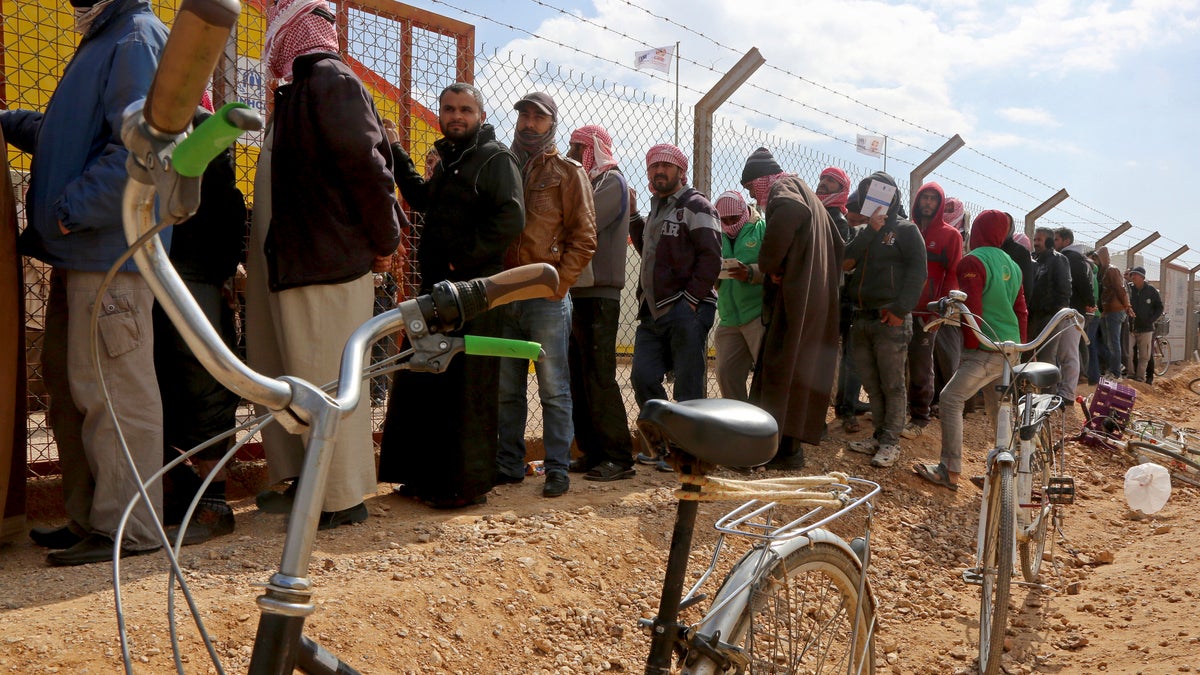The United Nations World Food Program (WFP) has announced a reduction in monthly cash assistance for 120,000 Syrian refugees living in Jordanian camps. This decision stems from a severe funding shortage, impacting vulnerable refugees who depend on this aid for survival. Jordan, a nation of 11 million, shelters approximately 1.3 million Syrian refugees, many residing in camps. A significant portion of the refugee population in the major camps, Zaatari and Azraq, rely heavily on this cash assistance to meet their basic needs.
This isn't the first reduction in aid. Last week, the WFP announced plans to gradually phase out assistance for 50,000 refugees in Jordan. Initially, the program supported 465,000 refugees. Following this latest cut, roughly 30% of the remaining refugees in the program will receive reduced cash assistance, decreasing from $32 to $21 per month. Jordanian officials have expressed concern, stating the country cannot bridge the financial gap left by dwindling international support.
The WFP's representative in Jordan, Alberto Correia Mendes, stated that these funding shortfalls severely restrict their ability to provide necessary aid. Even with the implemented cuts, the WFP still faces a $41 million deficit and may be forced to make further reductions. This funding crisis isn't unique to Jordan. Syrian refugees in Lebanon and Turkey are also experiencing similar aid reductions, exacerbating existing challenges in those countries.
Several factors contribute to this ongoing funding crisis, including donor fatigue, the economic impact of the COVID-19 pandemic, and the war in Ukraine. These converging issues have made it difficult for UN agencies and international humanitarian organizations to secure the necessary funding for Syrian refugees and aid efforts within Syria itself.
The Syrian civil war, now in its 13th year, has had devastating consequences. Nearly half a million lives have been lost, and half of the pre-war population of 23 million has been displaced. Jordanian Foreign Minister Ayman Safadi has emphasized the kingdom's inability to compensate for the funding cuts, highlighting the global responsibility to support refugees.

Syrian refugees line up to register their names at an employment office, Feb. 18, 2018, at the Azraq Refugee Camp, 62 miles east of Amman, Jordan. (AP Photo/Raad Adayleh, File)
The UNHCR's representative in Jordan, Dominik Bartsch, expressed concern that the aid reductions could escalate into a full-blown humanitarian crisis, impacting both refugees and host communities. He stressed the urgent need for increased funding to prevent further deterioration of the situation. While Jordan has engaged in regional discussions and called for investment in Syria's infrastructure to encourage voluntary refugee returns, Western sanctions on Syria continue to complicate the situation.
Comments(0)
Top Comments